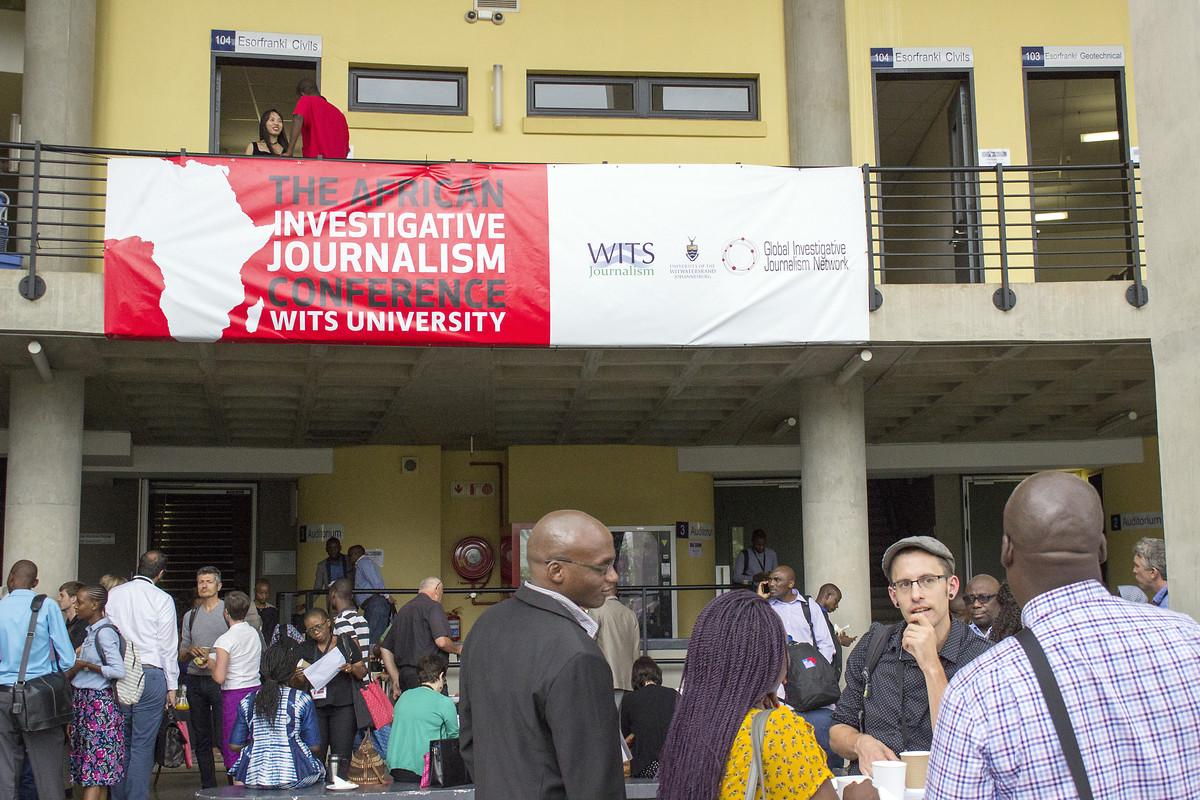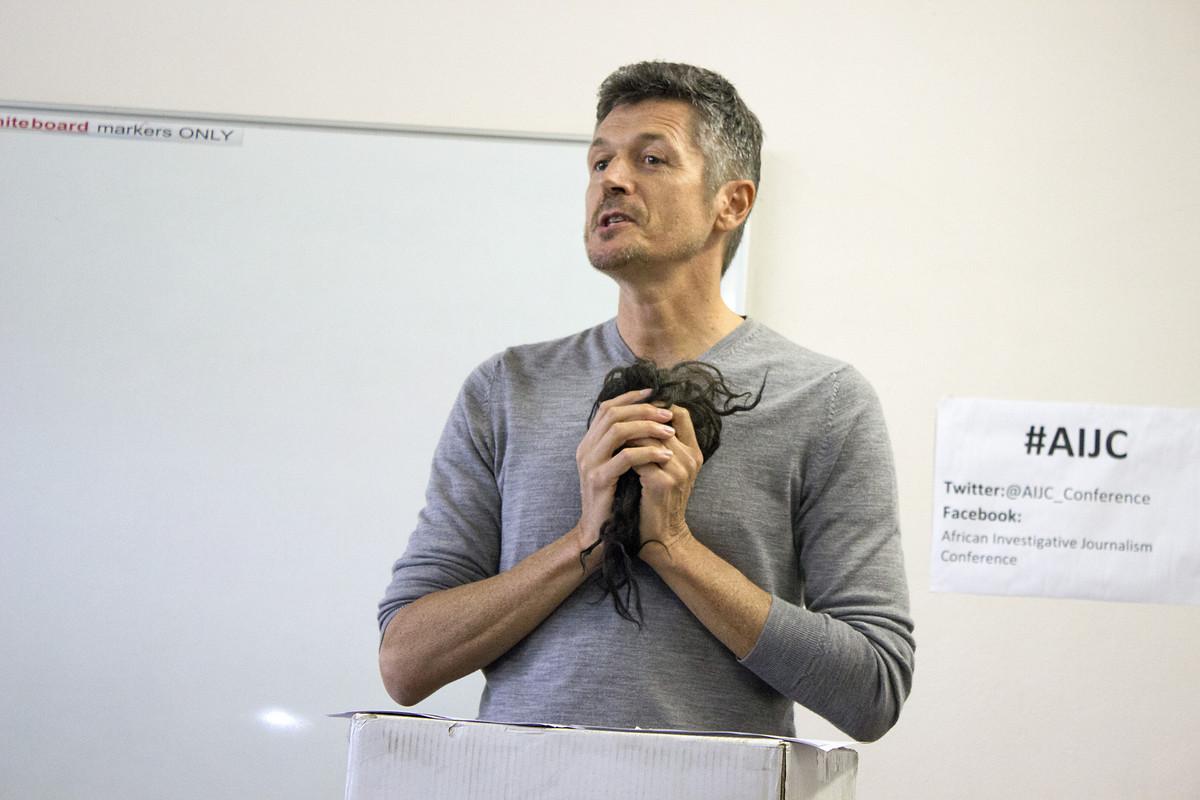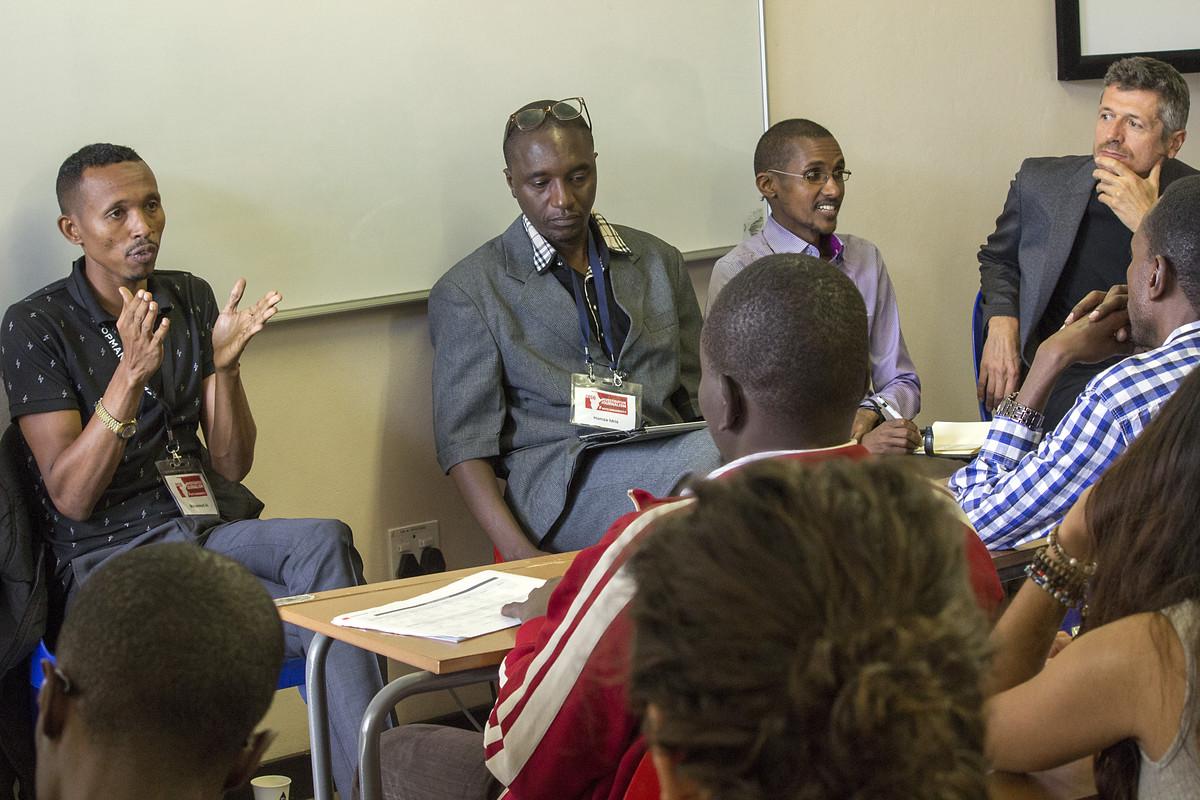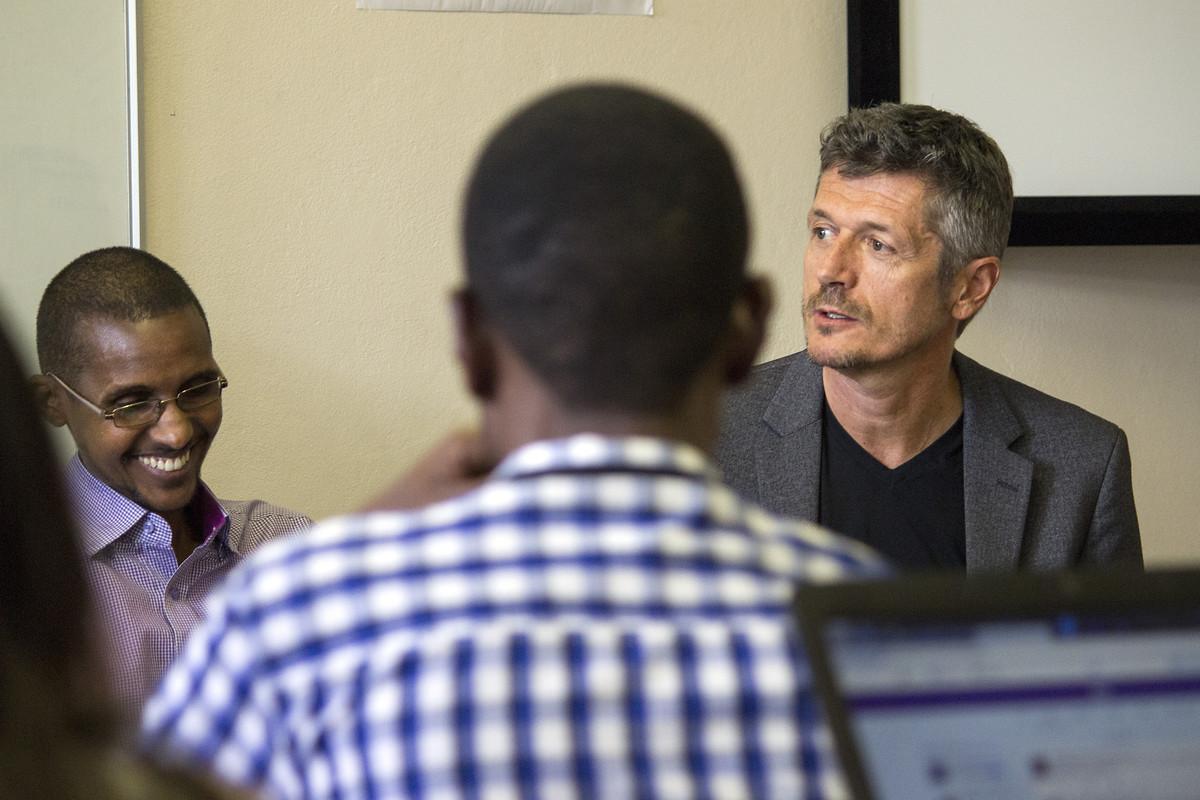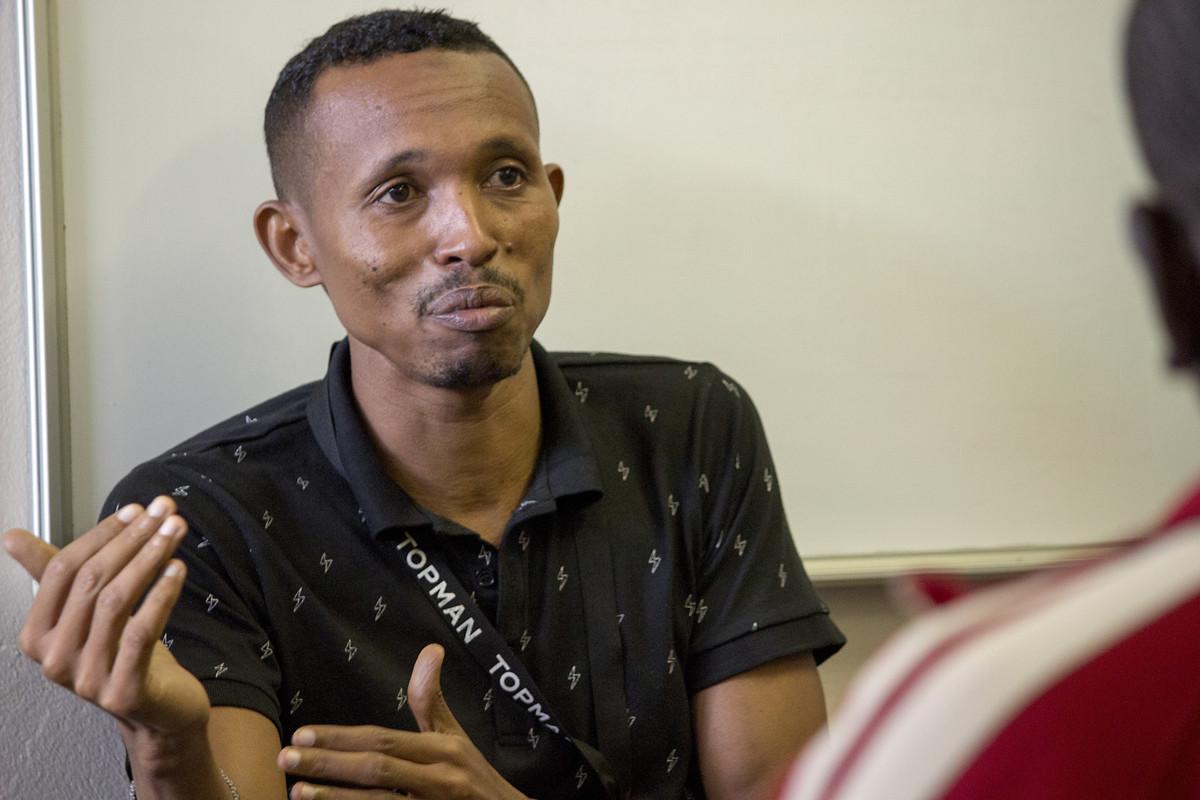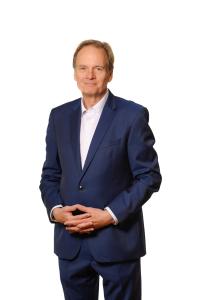The conference, which started eleven years ago as Power Reporting, was rebranded to put an emphasis on Africa and what the conference is all about, said Harber.
A key focus of the conference was on the Panama Papers – a leak of 11.5 million files from the database of the world’s fourth biggest offshore law firm, Mossak Fonseca. An anonymous whistleblower gave the files to German newspaper Süddeutsche Zeitung, and since then hundreds of journalists all over the world have been sifting through them. Will Fitzgibbon of the International Consortium of Investigative Journalists (ICIJ) spoke about the reporting on the Panama Papers and explained how important it is that journalists all over the world work together and build a big investigative network to do cross-border investigations. According to Fitzgibbons, this is the only way to tackle the huge number of the files. As an example, he mentioned that even if he doesn’t know too much about Nigerian politics, he would always alert his Nigerian colleagues in the network if he comes across the name of a high-ranking Nigerian politician in the files he was working on so that they can follow up the lead. ICIJ also brought African radio and TV partners on board so that the reporting becomes more visual.
Another very important topic at the conference was reporting terrorism. Michael Obert, an award winning German journalist, author and film maker talked about how investigative journalism can help African countries to deal with terrorism. Firstly, the reporting illuminates the reasons for terrorism, which are more likely poverty and marginalization than religious extremism. Secondly, it clears the misunderstanding that terrorists could be defeated by military measures only. Lastly journalists can give information about how the organisations work so that the government can make better decisions. As a case study, Obert talked about his investigation of Boko Haram. In Nigeria he was able to meet a member of the group, the first western journalist to do that. Obert also was on a panel with colleagues from Nigeria and Kenya talking about reporting on terrorism in Africa. And he pointed out: “The responsibility for us as western journalists is to address and to reflect the responsibility of our countries.”
Every year the Carlos Cardoso Memorial Lecture is another important programme highlight at the AIJC. Cardoso was a Mozambican investigative journalist murdered in 2000. The Memorial Lecture is a remembrance for all journalists who have been imprisoned or died for press freedom. This year the lecture was delivered by Bob Rugurika, an investigative journalist and founder of Radio Publique Africaine in Burundi. He was arrested in 2015 for exposing human rights violations by the government. One month after he was released he was forced into exile to Rwanda. It was almost not possible for him to come to Johannesburg to deliver the lecture as Burundi demanded his extradition from South Africa. Talking about his current situation Rugurika said: “Journalism is not a normal job, it’s a vocation.” He ended his moving speech with the following words: “If we give up, this world will deteriorate.”
While investigative journalism is undeniably under pressure on the continent, there were also a few interesting new models on show during the conference. John-Allan Namu, the co-founder and CEO of Africa Uncensored, an independent investigative media house from Kenya, pointed out the main problem of investigative journalism: “It is important and interesting to millions of people around the world, but it isn’t yet saleable.” He explained that their business model is the distribution of content that reflects the public interest and is therefore saleable. Every week they publish investigative journalism stories on social media in the form of videos. Africa Uncensored has sold their projects to mainstream media houses as well as other organisations like Amnesty International. Hamadou Tidiane, the founder of Ouestaf News, a sub-regional information platform in West Africa, admitted he never had a real business model; he started it out of “sheer passion” but maintains an emphasis on the exchange of information in the West African sub-region. Alvin Ntibinyane, co-founder of the INK Centre for Investigative Journalism, Botswana’s first non-profit news organisation explained how they develop investigative journalism in the public interest. South Africa’s respected AmaBhungane Centre for Investigative Journalism is funded by donations, but their stories are then sold to newspapers. AmaBhungane first identified that South Africa’s president Zuma had close ties to the controversial Gupta family in 2010 and have since published more than 65 stories on the Guptas.
All founders of the investigative journalism platforms were united in the opinion that investigative stories must be promoted on social media to gain people’s attention. And even though investigative journalism is expensive, because it needs a lot of time, it is the only instrument to discover and unravel stories in the public interest.
The other big focus of the AIJC was data journalism: learning how to clean dirty data, how to create an infographic or a map – everything was possible at the hands-on workshops. In the opening session trainer Ron Nixon explained why data journalism is so important: “It puts the reporter in control, rather than the sources.” And: “It helps you in your career, not everyone can do it.” After his persuasive introduction many participants used the three days to improve their data journalism skills.
Workshop attendees had to make tough choices from up to six concurrent sessions in the programme; they could decide whether they wanted to hear about African and international investigations, learn how to turn data into stories or conduct financial investigations or brush up on social media skills and tools. “The vast majority of case studies that were presented at the AIJC were from African journalists. It shows us that Africa is moving forward in uncovering the wrongdoing in its countries,” said Christian Echle, Director of the KAS Media Programme for Sub-Saharan Africa.
Next year the Global Investigative Journalism Conference will take place in Johannesburg in conjunction with the annual African conference. For the first time ever, the world’s largest international gathering of investigative journalists will take place in Africa. “This year’s AIJC was an outstanding test run for the global conference next year,” said Echle.




